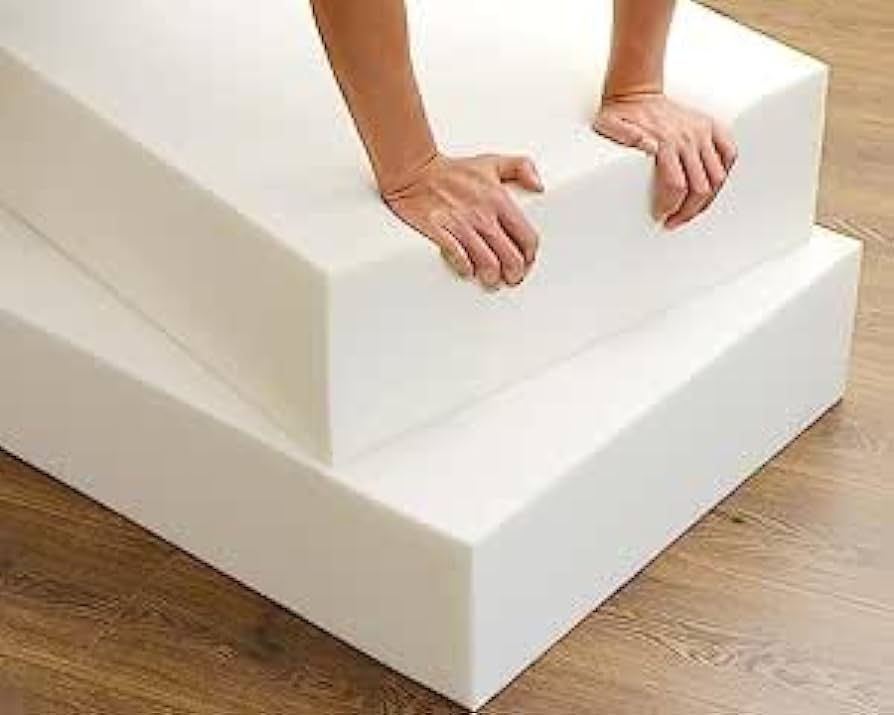Memory Foam Dealers Near Hennur
- 5 months ago
- Memory Foam Dealers Near Hennur ,
- Memory Foam Dealers In Kalyan Nagar ,
- Best Latex Foam Dealers In Bangalore ,
- Polyurethane Foam ,
- Flexible Foam Manufacturers Near Marathahalli ,
- Polyurethane Foam Dealers In Malleshwaram ,
- Memory Foam Suppliers In Rajajinagar

Composition and Structure
Memory foam, also known as viscoelastic foam, is made from polyurethane, which is a type of polymer. It contains additional chemicals that increase its viscosity and density. The foam's structure consists of a network of interconnected cells that are open and interconnected, allowing the material to be flexible and responsive. This structure contributes to memory foam's ability to conform to the shape of an object placed on it, distributing weight evenly.
Properties
1. Conforming Ability: Memory foam is renowned for its ability to conform to the shape of the body. When pressure is applied, the foam molds to the contours, providing support that is personalized to each individual. This property is particularly beneficial for reducing pressure points and enhancing comfort.
2. Pressure Relief: The conforming nature of memory foam helps to alleviate pressure on the body, which can be beneficial for individuals with joint pain or chronic conditions. By distributing weight evenly, memory foam reduces the likelihood of pressure sores and discomfort.
3. Temperature Sensitivity: Traditional memory foam reacts to temperature changes. It softens and becomes more pliable when exposed to heat from the body, and it becomes firmer in cooler temperatures. This temperature sensitivity helps the foam conform better to the body but can also lead to heat retention, which some users find uncomfortable.
4. Durability: Memory foam is generally durable and resilient. It retains its shape and support over time, although the density and quality of the foam can affect its longevity. Higher-density memory foam tends to be more durable and supportive.
Applications
1. Mattresses: One of the most common applications of memory foam is in mattresses. Memory foam mattresses are designed to provide superior comfort and support by contouring to the body’s shape. They help in minimizing motion transfer, which is beneficial for couples. This type of mattress is especially useful for those with back pain or other musculoskeletal issues.
2. Pillows: Memory foam pillows are popular for their ability to conform to the neck and head, providing support and alignment for a restful sleep. They help maintain proper spinal alignment and reduce neck pain.
3. Cushions: Memory foam is used in various cushions, including those for office chairs, car seats, and even medical cushions. These cushions offer enhanced comfort and support, reducing the risk of pressure sores and improving overall sitting comfort.
4. Bedding Accessories: In addition to mattresses and pillows, memory foam is used in bedding accessories such as mattress toppers, seat cushions, and ergonomic supports. These products enhance comfort and support without the need to replace existing furniture.
5. Medical Applications: Memory foam is also used in medical settings for patient support and comfort. It is used in hospital beds, wheelchairs, and other medical devices to prevent pressure ulcers and provide better support for patients who are bedridden or have limited mobility.
Advantages
1. Comfort: The primary advantage of memory foam is its superior comfort. Its ability to conform to the body’s shape provides a personalized sleeping experience, reducing pressure points and improving overall comfort.
2. Support: Memory foam offers excellent support by distributing body weight evenly. This helps maintain proper alignment of the spine and reduces stress on pressure points.
3. Motion Isolation: Memory foam’s ability to absorb and isolate motion makes it an excellent choice for couples. Movement on one side of the bed is less likely to disturb the partner on the other side.
4. Hypoallergenic Properties: Many memory foam products are hypoallergenic and resistant to dust mites and other allergens, making them suitable for individuals with allergies or respiratory issues.
Considerations
1. Heat Retention: One common concern with memory foam is its tendency to retain heat. The material can trap body heat, leading to a warmer sleeping experience. However, many modern memory foam products incorporate cooling technologies to address this issue.
2. Initial Odor: New memory foam products may emit a chemical smell, known as off-gassing. This odor usually dissipates within a few days but can be unpleasant for some users.
3. Firmness Variability: Memory foam comes in various densities and firmness levels. Choosing the right firmness is crucial for comfort and support. High-density foams are generally firmer and offer better support, while lower-density foams are softer and more conforming.
4. Cost: Memory foam products can be more expensive than traditional bedding options. However, the investment in comfort and support may be worth it for many individuals.
Conclusion
Memory foam has revolutionized comfort and support in a wide range of products, from mattresses and pillows to medical cushions and bedding accessories. Its unique properties, including its conforming ability, pressure relief, and durability, make it a popular choice for improving sleep quality and overall comfort. While there are some considerations, such as heat retention and cost, advancements in technology continue to address these issues, making memory foam a versatile and valuable material in the world of comfort and support.
.jpg)